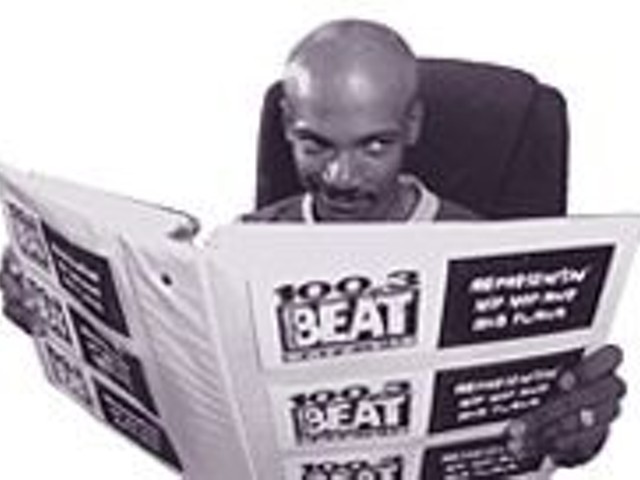But their drooling is understandable. Smith makes great fodder, perhaps because her presence is so striking: that carved, weathered face that was there from the start; a sexuality that flipped around when viewed from different angles -- she was at once feminine and masculine, ultrasexual and asexual; her voice simultaneously roared and wavered. As a result, writers were able to juggle readers' expectations easily. In both The Nick Tosches Reader and Meltzer's recently published A Whore Just Like the Rest, there are some gems. Tosches starts off a classic interview with Smith with this question: "Were you a horny teenager, Patti?" (Smith: "Yeah, I was horny, but I was innocent 'cause I was a real late bloomer and not particularly attractive.... I was so horny in school it felt like my body was filled with electricity. I felt like I had neon bones or something.") Meltzer, at one time a good friend of Smith's, wrote a hilarious piece called "Patti's Pair of Paps," which sidestepped the subject of Smith's music altogether and humorously deflated Smith's intrinsic power by objectifying her, critiquing some recently published naked Robert Mapplethorpe photos of the musician: "Big-uns for one of so thin a frame (97 lbs). Hangin down to maybe the third rib or so." Patti Smith made writers -- and photographers, especially Mapplethorpe, with whom she lived in the early '70s -- shine because her presence was so magnetic, even when her "I am a poet" posturing became tiresome, which it did and still does, often.
After strategically (and commendably) disappearing for the worst part of the '80s, Smith returned to disappoint with the noble failure Dream of Life, a record that sounded as though she were literally awakening after a 10-year sleep. Despite her best efforts at conjuring up fury in "Break It Up" or "Privilege (Set Me Free)," she couldn't do it, and it's taken her another decade to get back in stride. Her second comeback record, 1996's Gone Again, addressed the deaths of her brother, her husband (MC5 guitarist Fred "Sonic" Smith) and Kurt Cobain, and, as is often the case when one witnesses a stranger's mourning, the result was sad and, unfortunately, quite boring. She sounded emotionally paralyzed, and paralysis doesn't translate well onto tape. Peace and Noise was equally dead, and it appeared as though Smith, despite her reputation and lofty presence, had shot her wad. Where once she could toss off classics effortlessly, her '90s work as whole seems deliberate and clumsy.
This year's Gung Ho, though, is a different beast altogether, filled with the kind of rage that seasoned her early records and the kind of adventure missing from the others. The record starts off with a tabla beat, fer chrissakes, then moves to a gentle breakbeat. From there you can hear the assuredness of a master, one who once again can't contain her emotions, whose skin seems both paper-thin and thick as a brick, whose lyrics are all fury. Gung Ho contains one of Smith's greatest songs ever, an examination of race and America called "Strange Messengers." The song explodes without the aid of a hook; rather, she begins the song calmly, paging through a book, "Looking down at their naked feet/bound in chains, bound in chains," telling the wrenching story, ending up at the tree bearing strange fruit where the ghosts of the lynched, channeled through Smith's voice, bellow and howl.
Patti Smith, welcome, finally. Where have you been?
Related Links:





